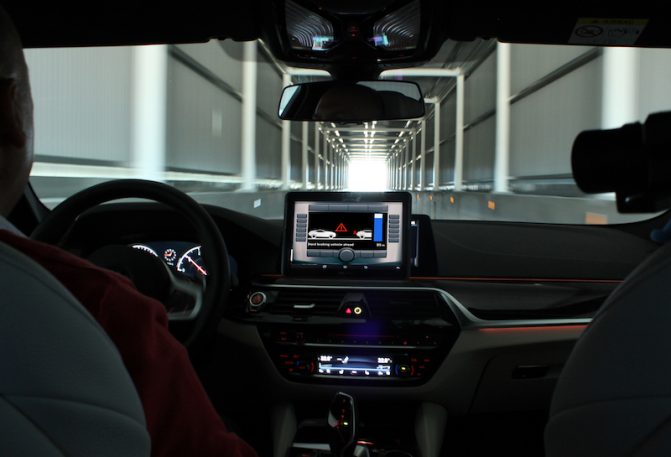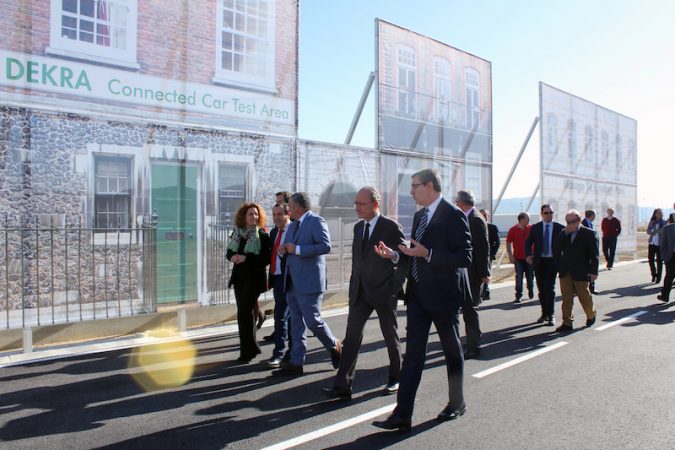International expert organisation DEKRA officially opened its connected car test area in Malaga, Spain this week as part of its new international network for connected, automated and electric driving.
DEKRA’s expert’s demonstrated two live connected cars, both of which were made available by BMW and showcased some of their own scenarios developed by DEKRA themselves, used to test the new V2X technologies. The V2X technologies allows vehicles to essentially interact with other road users, receiving the position, movement data and infrastructure within their vicinity and uses this information to help prevent road accidents and improve communication between drivers.
BMW also demonstrated new technologies using three conventional cars and two electric, to demonstrate their current Emergency Electronic Brake Lights and Road Work Warning scenarios alongside some of DEKRA’s other upcoming technologies. These including left turn assist, blind spot warning and control loss warning – all features that are designed to improve driver’s safety, improve congestion and drive up productivity within the industry.
The Future is Connected
The opening was attended by several government officials and some big names in the car industry, including DEKRA’s top management. The head of DEKRA’s Industrial activities and member of the DEKRA SE Management board Ivo Rauh said of the new test track opening “The Malaga Test area, part of our global testing network will allow us to smartly combine safety and connectivity testing, enabling automotive manufacturers to gain a competitive edge. Manufacturers can start future-proofing right now.”
A Boom for the UK Industry
DEKRA Automotive Ltd is one of the key suppliers to the UK Automotive Sector providing vehicle testing and training to companies throughout the country. With connected and autonomous vehicles becoming more common amongst drivers, and new test sites such as DEKRA’s opening, the industry is now booming for more technologically advanced cars. These innovative vehicles have been predicted to boost the UK economy in the coming years, with SMMT studies showing an added £51 billion a year by 2030 and the hopes of creating 320,000 new jobs.





